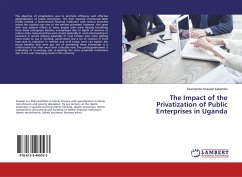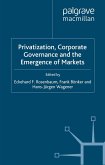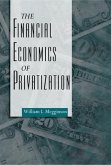This book examines privatization and the relationship between macroeconomic financial distress in emerging market countries. The study was undertaken to investigate the rationales of privatization and to explain the pattern and behavior of privatization in emerging market countries (EMCs). The central hypothesis under investigation is that countries with fiscal pressures such as high debt levels, significant budget deficits, and large current account deficits, ceteris paribus, are more likely to increase their privatization activities. The study begins by providing a background on privatization and state- owned-enterprises (SOEs) in EMCs. It then reviews the theoretical literature underlying privatization and financial distress. Next it provides a comparative profile of EMCs that privatized. The empirical analysis supports the hypothesis of a positive relationship between financial distress (with an emphasis on debt as a primary driver of distress) and privatization. In particular, higher levels of debt caused financial distress which caused countries to privatize relatively more.
Bitte wählen Sie Ihr Anliegen aus.
Rechnungen
Retourenschein anfordern
Bestellstatus
Storno








